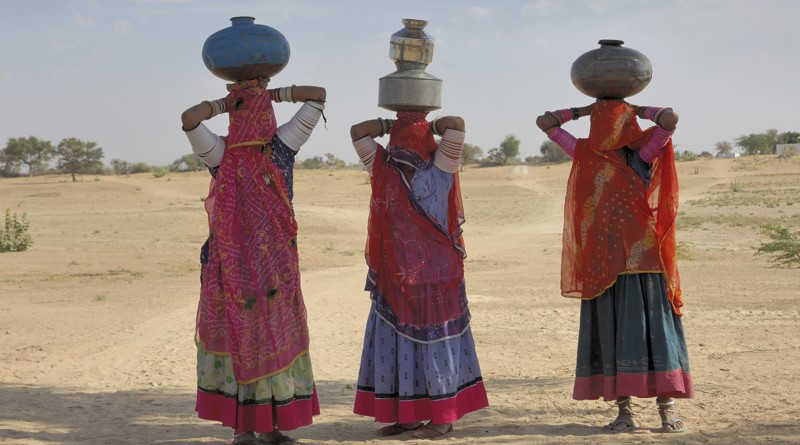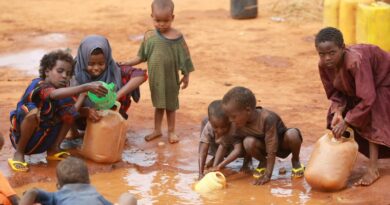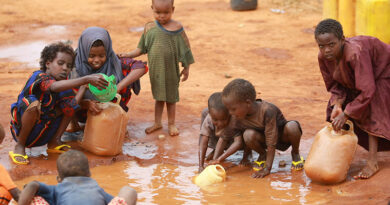India at top in internal displacement of people due to water-related natural disasters

South Asia has again emerged as the top spot in terms of internal displacement of people, with natural disasters, particularly water-related events, overtaking conflicts as the main cause, a new report from the Internal Displacement Monitoring Centre (IDMC) shows.
India has taken the pole position with over five million internal displacements due to disasters, with Bangladesh, China and the Philippines each recording more than 4 million disaster displacements.
A recent IDMC assessment report shows that in 2019, there were 33.4 million new displacements, with 8.5 million being attributable to conflict and violence. The top countries to suffer on this account were Syria, DRC Ethiopia, South Sudan and Burkina Faso.
But, almost 25 million new displacements were triggered by disasters, including 4.5 million by cyclone Fani in India and Bangladesh, cyclones Idai and Kenneth in Mozambique and hurricane Dorian in the Bahamas. Heavy and prolonged rains resulted in widespread flooding in Africa, resulting in two million new displacements.
The report said around 1900 disasters triggered 24.9 million new displacements across 140 countries and territories in 2019. This is the highest figure recorded since 2012 and three times the number of displacements caused by conflict and violence.
IDMC’s Global Report on Internal Displacement (GRID) estimates that 45.7 million people have been displaced due to conflict and violence in 61 countries, including Syria, Colombia, the Democratic Republic of the Congo, Yemen and Afghanistan.
“Year after year, conflict and violence uproot millions of people from their homes. Collectively, we are failing by epic proportions to protect the world’s most vulnerable. Politicians, generals and diplomats must rise above stalemates and seek ceasefires and peace talks, not guns and grenades. In this age of coronavirus, continued political violence is utterly senseless,” said Jan Egeland, Secretary General of the Norwegian Refugee Council, parent organisation to IDMC.
Efforts to prevent and respond to internal displacement were visible in many countries in 2019. In Asia pre-emptive evacuations saved lives and effective early warning systems and other measures to reduce disaster risk averted the worst impacts of disasters. National systems to collect and analyse displacement data were put in place in Indonesia, Mali and Sri Lanka.
UN Secretary General has set up a High-Level Panel on Internal Displacement, an expression of global political commitment, and three more African countries ratified the Kampala Convention, the continent’s unique and legally binding framework on the phenomenon.
“The GRID shows that measuring and understanding a problem is the cornerstone of efforts to resolve it, but resources and political commitment are also needed if IDPs are to make tangible progress in re-establishing their lives,” said IDMC director Alexandra Bilak.
“As the coronavirus pandemic casts an unforgiving light on the urgency of our task, we hope the lessons documented in this report will prove useful in our collective efforts to end internal displacement.”
There were visible efforts to prevent and respond to internal displacement in 2019, and promising developments in a number of countries highlighted the key ingredients for success. India does not find any mention among the countries that have achieved any measure of success on this count, according to the report.
New national initiatives showed greater levels of political commitment. Countries such as Niger and Somalia improved their policy frameworks on internal displacement. Others, including Afghanistan, Iraq and the Philippines, incorporated displacement in their development plans, in their reporting on the Sustainable Development Goals, or when updating risk management strategies in line with the Sendai Framework for Disaster Risk Reduction.
Strengthened capacity across humanitarian and development sectors manifested in better coordination and increased investment. Improvements in the quantity and quality of data available also enabled better reporting and analysis, which in turn informs more effective responses and risk mitigation measures, the report noted.
The recognition of internal displacement is a vital first step toward addressing it, the report said, noting that while policies and programmes may integrate internal displacement or be dedicated to it, but they should always align with national priorities.
Accounting for displacement and reporting on progress is a vital tool in generating and sustaining political commitment. National data strategies and dedicated budgets in Mali and the Philippines have enabled systematic and regular reporting, which in turn helps to attract more internal and external support for durable solutions, it added.



